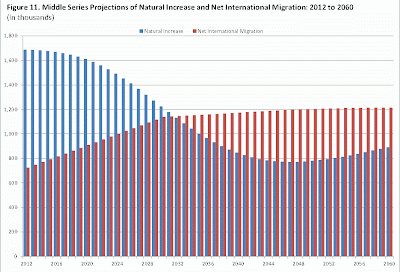Just when you thought Qatar's 2022 World Cup could not get any more controversial after continuing debates about the procedure used to select the tiny state and the difficulties associated with hosting the event during the peak of summer in the desert, there's more: It is common knowledge that the bulk of Qatar's workforce is composed of migrants who do the 3-D (dirty, dangerous, difficult) while its few citizens enjoy air-conditioned insulation from the harsh desert environment. However, recent reports have brought to light just exactly what the human cost is on migrant workers.
The Guardian got--pardon the expression--the ball rolling by reporting on the death toll of Nepalese workers due to poor living and working conditions out in the blast furnace of the Arabian desert to put up mega-stadiums in time for the 2022 event:
The Guardian got--pardon the expression--the ball rolling by reporting on the death toll of Nepalese workers due to poor living and working conditions out in the blast furnace of the Arabian desert to put up mega-stadiums in time for the 2022 event:
This summer, Nepalese workers died at a rate of almost one a day in Qatar, many of them young men who had sudden heart attacks. The investigation found evidence to suggest that thousands of Nepalese, who make up the single largest group of labourers in Qatar, face exploitation and abuses that amount to modern-day slavery, as defined by the International Labour Organisation, during a building binge paving the way for 2022.Der Spiegel then added fuel to the fire by suggesting that Indian workers are also dying of exploitation out in the desert so that the 2022 show may go on:
According to documents obtained from the Nepalese embassy in Doha, at least 44 workers died between 4 June and 8 August. More than half died of heart attacks, heart failure or workplace accidents. The investigation also reveals:
• Evidence of forced labour on a huge World Cup infrastructure project.
• Some Nepalese men have alleged that they have not been paid for months and have had their salaries retained to stop them running away.
• Some workers on other sites say employers routinely confiscate passports and refuse to issue ID cards, in effect reducing them to the status of illegal aliens.
• Some labourers say they have been denied access to free drinking water in the desert heat.
• About 30 Nepalese sought refuge at their embassy in Doha to escape the brutal conditions of their employment.
There are many indications that the 44 dead Nepalese are no exception. Following the revelations in the Guardian, the Indian ambassador reported that 82 Indian workers had died in the first five months of this year, and noted that 1,460 Indians had complained of poor working conditions. The International Trade Union Confederation [ITUC] fears that up to 4,000 workers could die in Qatar before the starting whistle is blown for the first match -- that is, if working conditions don't change.The 4,000 worker deaths are an extrapolation of the current rate of fatalities being incurred by South Asian workers in Qatar over ten years. Moreover, ITUC argues that Qatar's efforts are in vain since the structure of migrant construction labor is fundamentally abusive:
"The labour inspection system in Qatar has failed, and the government's announcement would simply add some inspectors into a system that doesn't work and will not make a difference," said Sharan Burrow, the ITUC general secretary. "Workers are not able to speak freely as, under the strict visa sponsorship system, employers retain their passports and they are not allowed to change jobs or leave the country without the employer's permission."Alike nearly all other migrant-receiving states, Qatar has not signed up to the International Convention on the Protection of the Rights of All Migrant Workers and Members of Their Families. Hence, Qatar's critics are applying pressure on Qatar being a signatory in another ILO convention concerning forced labor:
Qatar is failing to fully implement an international convention banning the use of forced labour ahead of the 2022 football World Cup, the United Nations' International Labour Organisation (ILO) has warned. Azfar Khan, the ILO's senior labour migration adviser in the Arab states, told the Guardian that despite pledges to do otherwise Qatar did not properly inspect workplace conditions and there was "no coherence" in the state's policies over the use of migrant labour.It is turning out to be a fiasco not only for football organizers but also for Qatar. The latter's image is receiving a battering that it's hard to imagine it will recover from in nine years' time. Isn't improving national reputation the goal of the whole enterprise? Qatar seems to be losing sight of it very badly.
"The onus is on the Qataris if they have ratified the convention to better implement it," he said. "Many of the abuses that take place which can lead to forced labour are still happening."





























